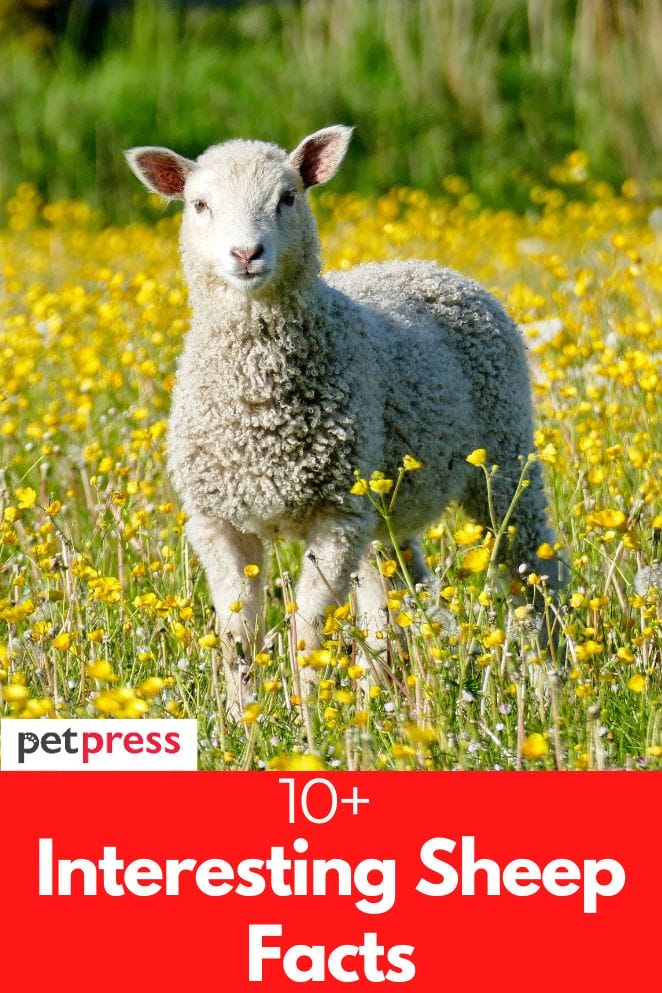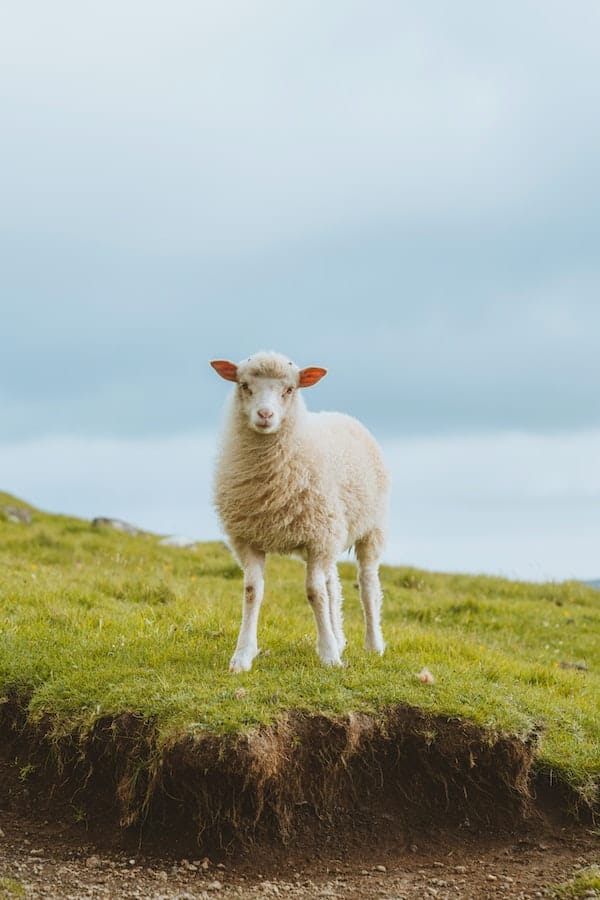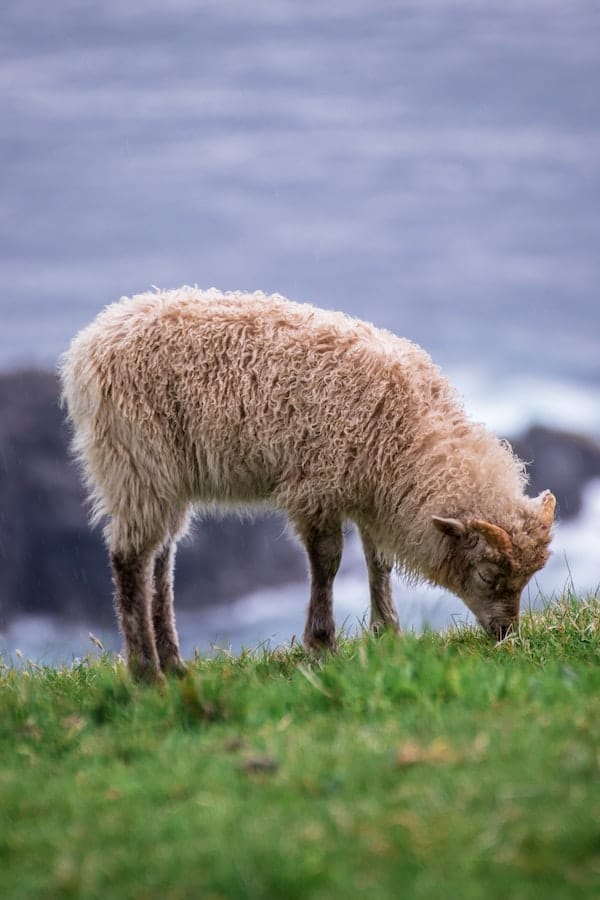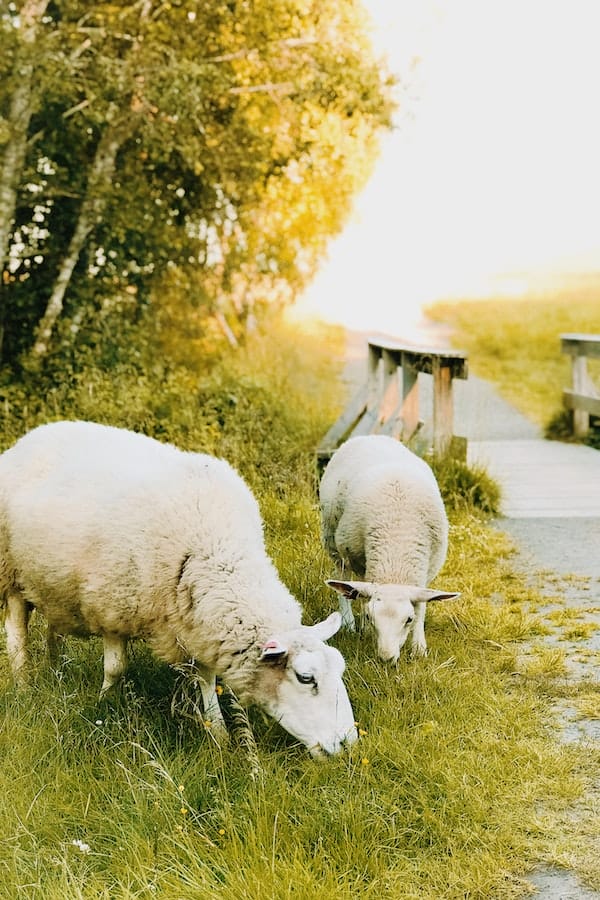
Sheep are incredibly fascinating animals, and they have a long history of domestication.
Sheep have been used for their meat, wool, and milk for thousands of years, and today there are hundreds of different breeds of sheep around the world.
From the wild mouflon to the friendly Dorset Horn, every breed has unique characteristics that make them interesting.
Here are some interesting facts about sheep that you may not know!
Fact #1: Sheep are one of the oldest domesticated animals.
Sheep have been domesticated by humans for thousands of years, and they are one of the oldest farm animals.
Sheep were first kept by people as early as 8000 BC in Ancient Mesopotamia, and over time different breeds have been developed with unique characteristics.
While most modern sheep are bred for their meat or wool, some primitive breeds still exist in the wild and are valuable for conservation.
Sheep were also kept as livestock by Ancient Egyptians, Greeks, and Romans, who used their wool to make clothing and other items.
Fact #2: Sheep have a strong sense of flock dynamics.
Sheep are social animals who rely on their flock for protection and support.
They can recognize individual members of the flock and form complex relationships with each other.
Sheep will often demonstrate cooperative behavior when foraging for food or escaping predators.
They also communicate with each other through a variety of sounds and body language, allowing them to respond quickly to changes in the environment.
Sheep are even able to recognize human faces, making them easy to train and work with.
Fact #3: Sheep come in many different colors and sizes.

Sheep can vary greatly in size, shape, and color.
There are hundreds of different breeds around the world, each with its own unique characteristics.
From miniature sheep like the Cheviot to large animals such as the Jacob or Merino, there is a breed for every purpose.
Some sheep are white or black, while others may be spotted or even multi-colored. Each breed has its own distinct fleece, which is used to make wool for clothing and other items.
Fact #4: Sheep can live up to 10 years in the wild.
Sheep are hardy animals that can live for up to 10 years in the wild.
Domestic sheep typically have a shorter lifespan of around 6 years, but they can still reach up to 8 or 9 if they receive proper care and nutrition.
Sheep have remarkable adaptability and are able to survive in a variety of climates and environments. They can also find food in even the harshest conditions, making them resilient animals.
Fact #5: Sheep can remember up to 50 different faces for years.
Sheep have an impressive memory and can recognize up to 50 different faces for years.
This is why sheep are one of the easiest farm animals to train and work with.
They can remember the faces of their herd members and even humans, allowing them to adapt quickly to changes in their environment.
Sheep have also been known to display complex social behavior with other members of their flock, further demonstrating their intelligence.
Fact #6: Sheep wool can be used for many different purposes.
Sheep’s wool is one of the most valuable and versatile materials in the world.
Wool can be used to make clothing, blankets, carpets, and many other items.
It is also a great insulator, keeping humans warm in cold climates and cool in hot climates.
Wool is also durable and can last for years if it is cared for properly, making it an ideal choice for many uses.
In addition to these practical applications, sheep wool has been used by artisans to create beautiful pieces of textile art.
- Related post: Most Famous and Cute Names For Sheep
- Related post: 10+ Interesting And Fascinating Goat Facts
Fact #7: Some sheep breeds are used for milking and cheese production.

Some sheep breeds, such as the East Friesian and Awassi, have been bred specifically for milk production.
These animals can produce up to four liters of milk per day and are used in the production of cheese, yogurt, and other dairy products.
Specialized milking machines can be used to harvest milk from these breeds quickly and efficiently.
The high quality and flavor of this milk are highly sought after by cheese makers all over the world.
Fact #8: Sheep are an important source of meat and leather.
Sheep have been used for centuries as a source of food and materials.
Their meat, which is called mutton, is highly valued in many cultures around the world.
In addition to being eaten, sheep skins and hides can be tanned to produce leather, which is used for a variety of products such as clothing and upholstery.
Sheep are also important sources of renewable wool fibers, which can be spun into yarns or felted fabrics.
Fact #9: Sheep have various symbolic meanings in many cultures.
Sheep have a long history of symbolic meaning in many cultures.
For example, in Christianity, sheep are seen as symbols of faithfulness and obedience.
In Islam, they are viewed as signs of patience and trustworthiness.
Ancient Egyptians revered the ram for its strength and perseverance and often used it as a symbol of wealth and power.
In many cultures, sheep are also seen as symbols of fertility and prosperity.
Fact #10: Sheep play an important role in the global economy.
Sheep are one of the most valuable animals in the global economy.
Millions of sheep are farmed around the world for their meat, wool and milk products.
Their hides can also be made into leather, which is used to create furniture, clothing and accessories.
Sheep farming provides many people with a livelihood and contributes significantly to rural economies all over the world.
Fact #11: Sheep can be used to graze land and help improve soil fertility.

Sheep are often used as a form of agriculture management, known as grazing.
By strategically grazing certain areas of land, sheep can help keep grasses short and promote the growth of a variety of plants.
This can help to increase biodiversity and improve soil fertility, making it easier for other animals and crops to thrive in the area.
Grazing also has the benefit of reducing weeds and controlling pests, which helps to maintain healthy grasslands.
Fact #12: Sheep have been selectively bred for specific traits.
Over the centuries, sheep farmers have selectively bred their animals to possess certain physical and behavioral characteristics.
For example, some breeds are bred to produce more wool or be more resistant to disease.
By carefully selecting which animals they breed with, farmers can ensure that their sheep have the most desirable traits for their particular purpose.
Selective breeding has allowed farmers to produce animals that are better suited to their environment and can thrive more easily than wild populations.
Overall, it is clear that sheep are incredibly versatile and important animals.
They provide many benefits to humans, from food and materials to soil fertility and economic contributions.
Even though they may not always get the recognition they deserve, it is evident that sheep play a vital role in our lives.
- Essential Oils Safe for Cats: What Every Pet Owner Needs to Know - May 23, 2025
- Herbal Supplements for Cats: A Natural Approach to Cat Wellness - May 21, 2025
- Signs of a Healthy Cat Coat: What Every Cat Owner Should Know - May 19, 2025


GIPHY App Key not set. Please check settings